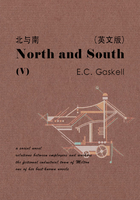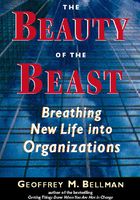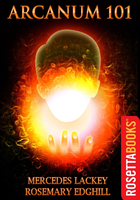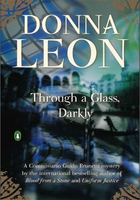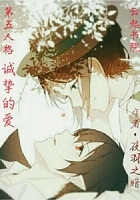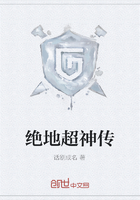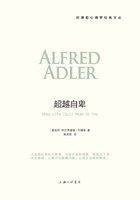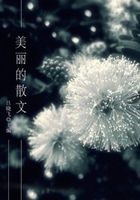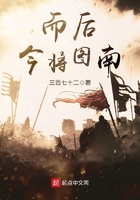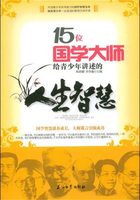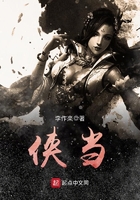Weight of the World
My father was Poseidon. My mother was the Earth.
My father loved the strong outlines of my mother's body. He loved her demarcations and her boundaries. He knew where he stood with her. She was solid, certain, shaped and material.
My mother loved my father because he recognised no boundaries. His ambitions were tidal. He swept, he sank, he flooded, he re-formed. Poseidon was a deluge of a man. Power flowed off him. He was deep, sometimes calm, but never still.
My mother and father teemed with life. They were life. Creation depended on them and had done so before there was air or fire. They sustained so much. They were so much. To each other they were irresistible.
Both were volatile. My father obviously so, my mother more alarmingly. She was serene as a rock but volcano'd with anger. She was quiet as a desert but tectonically challenged. When my mother threw a plate across the room, the whole world felt the crash. My father could be whipped into a storm in moments. My mother grumbled and growled and shook for days or weeks or months until her rage fissured and crumpled entire cities or forced human kind into lava-like submission.
Humankind…They never could see it coming. Look at Pompeii. There they are in the bathhouses, sitting in their chairs, wearing skeletal looks of charred surprise.
When my father wooed my mother she lapped it up. He was playful, he was warm, he waited for her in the bright blue shallows and came a little closer, then drew back, and his pull was to leave a little gift on her shore; a piece of coral, mother of pearl, a shell as spiralled as a dream.
Sometimes he was a long way out and she missed him and the beached fishes gasped for breath. Then he was all over her again, and they were mermaids together, because there was always something feminine about my father, for all his power. Earth and water are the same kind, just as fire and air are their opposites.
She loved him because he showed her to herself. He was her moving mirror. He took her round the world, the world that she was, and held it up for her to see, her beauty of forests and cliffs and coastlines and wild places. To him she was both paradise and fear and he loved both. Together they went where no human had ever been. Places only they could go, places only they could be. Wherever he went, she was there; a gentle restraint, a serious reminder; the earth and the waters that covered the earth. He knew though, that while he could not cover the whole of her, she underpinned the whole of him. For all his strength, she was strong.
I was born. I was born one of the Titans, half man, half god, a giant of a giant race. I was born on an island where my father could lie over my mother for a day and a night before subsiding. From this prolonged intercourse, riddling himself into every crack, I was bound to be a fatal combination of them both. I am as turbulent as my father. I am as brooding as my mother. I act suddenly. I never forget. I sometimes forgive, compassion washing away memory. I know what love is. I know love's counterfeit. At the same time, my good nature makes me easy to deceive. Like my brother Prometheus, I have been punished for overstepping the mark. He stole fire. I fought for freedom.
Boundaries, always boundaries.
I keep telling the story again and though I find different exits, the walls never fall. My life is paced out–here and here and here–I can alter its shape but I can't get beyond it. I tunnel through, seem to find a way out, but the exits lead nowhere. I'm back inside, leaning on the limits of myself.
This is the body, the sealed unit that cautiously takes in what it needs to survive, that stoutly repels invaders of the microbe kind. This is the body, whose boundaries weaken only in decay and then the freedom it brings is useless. United with the world at last, I am dead to it.
This is the body, and my body is the world in little. I am the Kosmos–the all that there is, and at the same time I was never more outside, never more than nothing. Nothing bounded by nothing.
Nothing has an unlikely property. It is heavy.
The story is a simple one. I had a farm. I had cattle. I had a vineyard. I had daughters. I lived on Atlantis, the perfect synthesis of a wealthy mother and a proud father. The Titans bowed to no-one, not even Zeus, whose thunderbolts were like a game to us.
When I wanted gold and jewels I asked my mother where she kept them and she indulged me as mothers indulge sons, and showed me her secret mines and underground caves.
When I wanted whales or harbours or nets lined with fish or pearls for my daughters, I went to my father, who respected me and treated me as an equal. I dived with him into hot springs that blasted the floor of the ocean. We swam wrecks and tamed porpoises. Land and sea were equal home to me, and when Atlantis was finally destroyed, I even felt a kind of gladness. All that loss was after all, only my mother and father's embrace. I was nothing. I returned to nothing. I wish it had been so.
Boundaries, always boundaries, and the longing for infinite space.
I built a walled garden, a temenos, a sacred space. I lifted the huge stones with my own hands and piled them carefully, as a goatherd would, leaving tiny gaps to let the wind through. A solid wall is easily collapsed. My mother stirring in her sleep could do as much. A wall well built with invisible spaces will allow the winds that rage against it to pass through. When the earth underneath it trembles, the spaces make room for movement and settlement. The wall stands. The wall's strength is not in the stones but in the spaces between the stones. It's a joke against me I think, that for all my strength and labour, the wall relies on nothing. Write it more substantially–NOTHING.
This garden is well known. My daughters, the Hesperides, tend it, and far and wide it is called The Garden of the Hesperides. Along with the usual kinds of fruit, the garden enjoys a rarity. My mother, Mother Earth gave the goddess Hera a golden apple tree for her wedding day, and Hera loved the tree so much that she asked me to tend it for her.
I have heard some men say that the apples are solid gold, and that this is the reason why they must be guarded so carefully. Every man assumes that what is valuable to himself must be coveted by others. Men who love gold, long for gold and guard it with their lives, though life is more precious than any metal. My mother has no need of gold, and what does Hera want with gold? No, the beauty of the tree is in its living nature. Its apples are tiny, pineapple- scented jewels that hang from fruiting branches covered in dark green leaves. There is no other tree like it. It stands in the centre of the garden, and once a year, Hera comes to collect its harvest.
All well and good. At least I thought so until Hera appeared to me in a rage that sent me cowering inside a shed of excuses.
My daughters had been secretly eating the sacred fruit. Who could blame them, the tree, sweet-scented and heavy, and the grass underneath it wet with evening dew? Their feet were bare and their mouths were eager. They are girls after all.
I did not see the harm myself, but the gods are jealous of their belongings. Hera sent the serpent Ladon to guard the tree, and there he is now, coiled and watchful, with a hundred heads and double that in tongues. I hate him, though he is a dark dream of my mother's, a solid nightmare birthed into day.
When I was cast out of the garden, I thought nothing heavier could befall me.
I was wrong.
The war between the gods and the Titans was a war we had preferred to avoid. There are several versions of this war. One thing is certain; what began as just cause became just excuse. We fought for ten years.
Some say that my father was Uranus and that my brothers and I, especially Cronus, plotted to attack him and castrate him. It is certain that Cronus cut off the genitals of Uranus, and then took power himself. It is certain too, that Cronus bore a child, Zeus, who likewise dethroned his father and gained control of the heavens. Zeus had two brothers, Hades and Poseidon, and while Zeus became Lord of the Sky, Poseidon had his kingdom in the waves, and Hades was content with what lies beneath. The earth was left to mankind.
It was mankind who attacked quiet Atlantis, and Zeus who helped them to destroy my people. I escaped, and joined the revolt against the heavens. I was the war-leader, the one who had lost most and had little to fear. What can a man fear with nothing to lose?
In the long fighting, most of us were killed, and my mother, out of her secret nature, promised victory to Zeus. What Titans were left were banished to Britain, where the cold inhospitable rocks are worse than death. I was spared for my great strength.
In a way I was allowed to be my own punishment.
Because I loved the earth. Because the seas of the earth held no fear for me. Because I had learned the positions of the planets and the track of the stars. Because I am strong, my punishment was to support the Kosmos on my shoulders. I took up the burden of the whole world, the heavens above it, and the depths below. All that there is, is mine, but none of it in my control. This is my monstrous burden. The boundary of what I am.
And my desire?
Infinite space.
It was the day of my punishment.
The gods assembled. The women were on the left and the men were on the right. There's Artemis, worked muscle and tied-back hair, fiddling with her bow so that she doesn't have to look at me. We were friends. We hunted together.
There's Hera, sardonic, aloof. She couldn't care less. As long as it's not her.
There's Hermes, fidgety and pale, he hates trouble. Next to him lounges Hephastus, ill-tempered and lame, Hera's crippled son, tolerated for his gold smithy. Opposite him is Aphrodite his wife, who loathes his body. We've all had her, though we treat her like a virgin. She smiled at me. She was the only one who dared…
Zeus read out his decree. Atlas, Atlas, Atlas. It's in my name, I should have known. My name is Atlas–it means 'the long suffering one'.
I bent my back and braced my right leg, kneeling with my left. I bowed my head and held my hands, palms up, almost like surrender. I suppose it was surrender. Who is strong enough to escape their fate? Who can avoid what they must become?
The word given, teams of horses and oxen began to strain forward, dragging the Kosmos behind them like a disc-plough. As the great ball ploughed infinity, pieces of time were dislodged. Some fell to earth, giving the gift of prophecy and second sight. Some were thrown out into the heavens, making black holes where past and future cannot be distinguished. Time spattered my calf muscles and the sinews in my thighs. I felt the world before it began, and the future marked me. I would always be here.
As the Kosmos came nearer, the heat of it scorched my back. I felt the world settle against the sole of my foot.
Then, without any sound, the heavens and the earth were rolled up over my body and I supported them on my shoulders.
I could hardly breathe. I could not raise my head. I tried to shift slightly or to speak. I was dumb and still as a mountain. Mount Atlas they soon called me, not for my strength but for my silence.
There was a terrible pain in the seventh vertebra of my neck. The soft tissue of my body was already hardening. The hideous vision of my life was robbing me of life. Time was my Medusa. Time was turning me to stone.
I do not know how long I crouched like this, petrified and motionless.
* * *
At last I began to hear something.
I found that where the world was close to my ears, I could hear everything. I could hear conversation, parrots squawking, donkeys braying. I heard the rushing of underground rivers and the crackle of fires lighted. Each sound became a meaning, and soon I began to de-code the world.
Listen, here is a village with a hundred people in it, and at dawn they take their cattle to the pastures and at evening they herd them home. A girl with a limp takes the pails over her shoulders. I know she limps by the irregular clank of the buckets. There's a boy shooting arrows–thwack! thwack! into the padded hide of the target. His father pulls the stopper out of a wine jar.
Listen, there's an elephant chased by a band of men. Over there, a nymph is becoming a tree. Her sighs turn into sap.
Someone is scrambling up a scree slope. His boots loosen the ground under him. His nails are torn. He falls exhausted on some goat-grass. He breathes heavily and goes to sleep.
I can hear the world beginning. Time plays itself back for me. I can hear the ferns uncurling from their tight rest. I can hear pools bubbling with life. I realise I am carrying not only this world, but all possible worlds. I am carrying the world in time as well as in space. I am carrying the world's mistakes and its glories. I am carrying its potential as well as what has so far been realised.
As the dinosaurs crawl through my hair and volcanic eruptions pock my face, I find I am become a part of what I must bear. There is no longer Atlas and the world, there is only the World Atlas. Travel me and I am continents. I am the journey you must make.
Listen, there's a man telling a story about the man who holds the world on his shoulders. Everybody laughs. Only drunks and children will believe that.
* * *
No man believes what he does not feel to be true. I should like to unbelieve myself. I sleep at night and wake in the morning hoping to be gone. It never happens. One knee forward, one knee bent, I bear the world.

